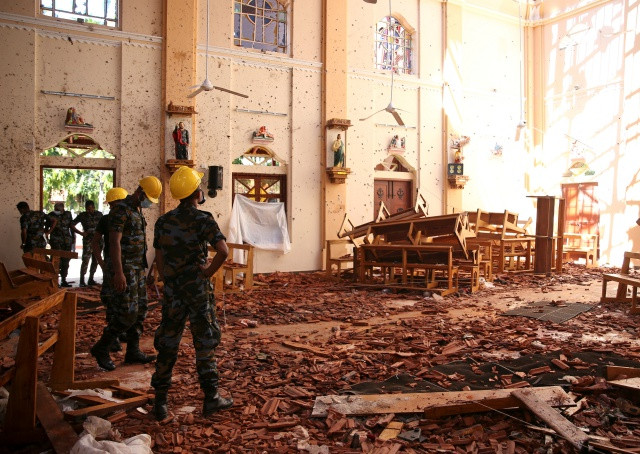Sri Lanka was peacefully celebrating Easter Sunday this past weekend when it was rocked by multiple explosions. It turned out that hotels and churches were bombed and as of now, the death toll has reached 290.
The series of blasts in cities of Sri Lanka blew out church interiors, shattered hotels leaving a trail of blood as people were injured or have died on the scene. Footage and images showed these places in total disarray with people crying for their dead loved ones while others remained in shock.
"You can see pieces of flesh thrown all over the walls and on the sanctuary and even outside of the church," speaking to CNN, Father Edmond Tillekeratne, social communications director for the Archdiocese of Colombo, said.
The priest added that the Easter Sunday drew thousands of people to the church and some even came from far away villages since it was a special day,
On the other hand, Manisha Gunasekera, the High Commissioner of Sri Lanka to the UK said that the attacks are definitely acts of terror. "This is an attack against the whole of Sri Lanka because Sri Lanka is very multi-ethnic, multi-religious and multi-cultural country and the whole country comes together in celebration of Easter Sunday," she said.
A total of eight places were counted in all as the sites of the blasts and these are St. Anthony's Shrine, Colombo, Zion Church, Batticaloa, St. Sebastian's Church, Negombo, Shangri-La Hotel, Colombo, Cinnamon Grand, Colombo, The Kingsbury Hotel, Colombo, Near Dehiwala Zoo in Dehiwala-Mount Lavinia and A house in Mahawila Gardens, Dematagoda.
Warning was Issued
There are questions now if the Sri Lankan government had shortcomings because they were saying that the bombings could have been stopped since warnings were issued weeks before the attacks were carried out. It was reported that some people in the government had known about the potential attacks due to such warning notes and the places like hotels and churches were even specified in the note as well.
In early April, intelligence services in India and the US informed Sri Lanka about the threat and one note was said to contain very detailed info and possible suspects were also listed for the Sri Lankan's government's awareness. As the holiest day for the Christians gets closer, the warnings were intensified but all of these seem to have fallen on deaf ears as no action was taken to protect the citizens.
The New York Times reported that the warning memo stated the names, phone numbers, addresses and even the time when one of the suspects was said to visit his wife before he takes part in the attack. But apparently, this was ignored so when the suicide bombers walked and strategically placed themselves inside crowded churches and hotels, they were not detected as the security was lax if there was any at all.
The next scenes after the attackers planted themselves in the crowded buildings were devastating as people lay dead while others were severely injured. Based on the ongoing investigations, the National Thowheeth Jama'ath is being suspected as the culprit for the terror attacks. They are a radical Islamist group in Sri Lanka - not well-known but now proven to be very dangerous.
Links to international terror groups are also being looked at in this incident. As of now, 24 people have been arrested and considered as suspects. The FBI is assisting Sri Lanka with the investigations and Interpol (International Criminal Police Organization) is sending a team as well.
Meanwhile, the social media ban in Sri Lanka is still in effect. The government ordered shutting them down since Sunday and cited false news reports as the reason for the action. Facebook, Instagram, YouTube, WhatsApp, and Snapchat remained blocked.





